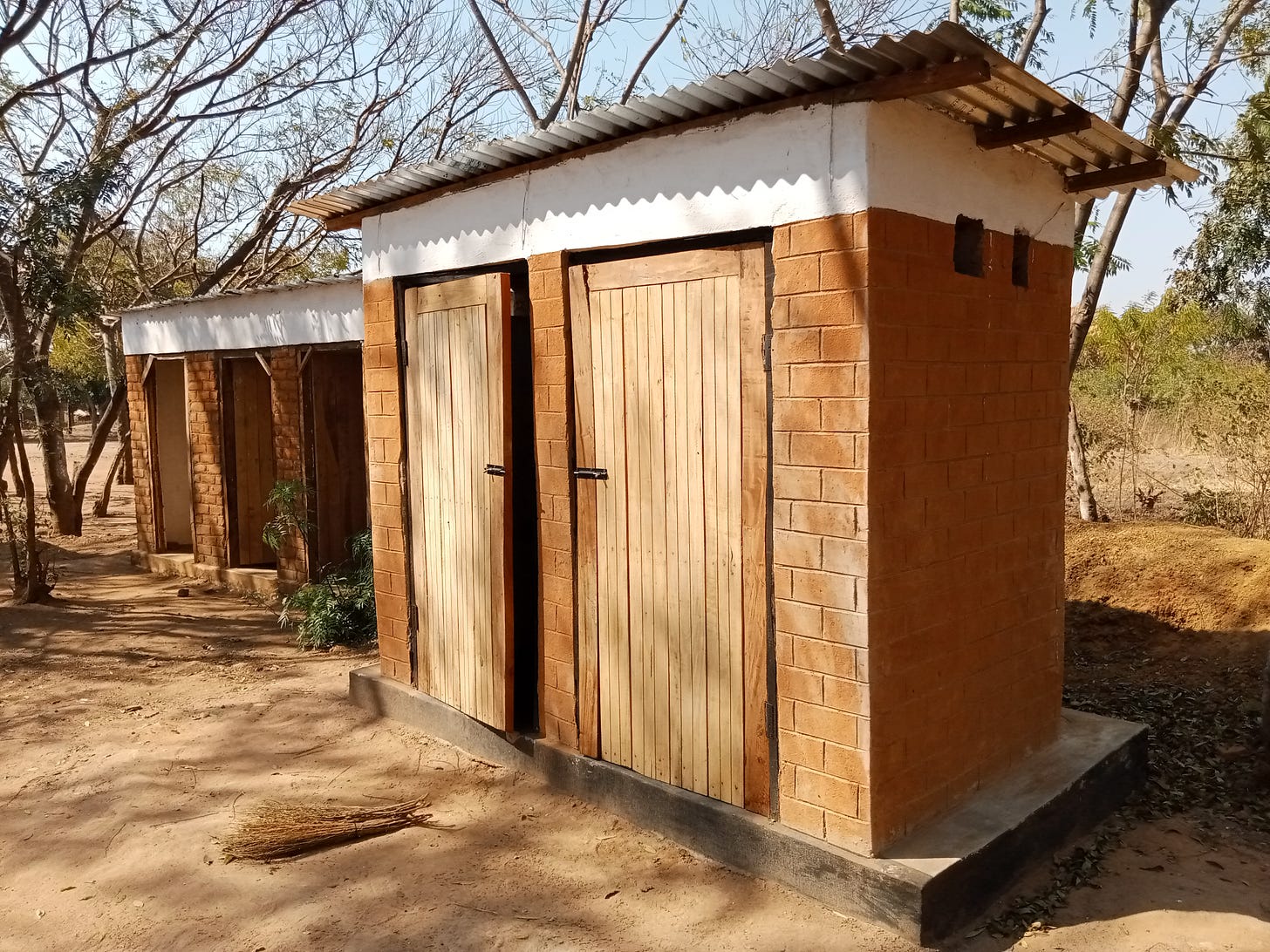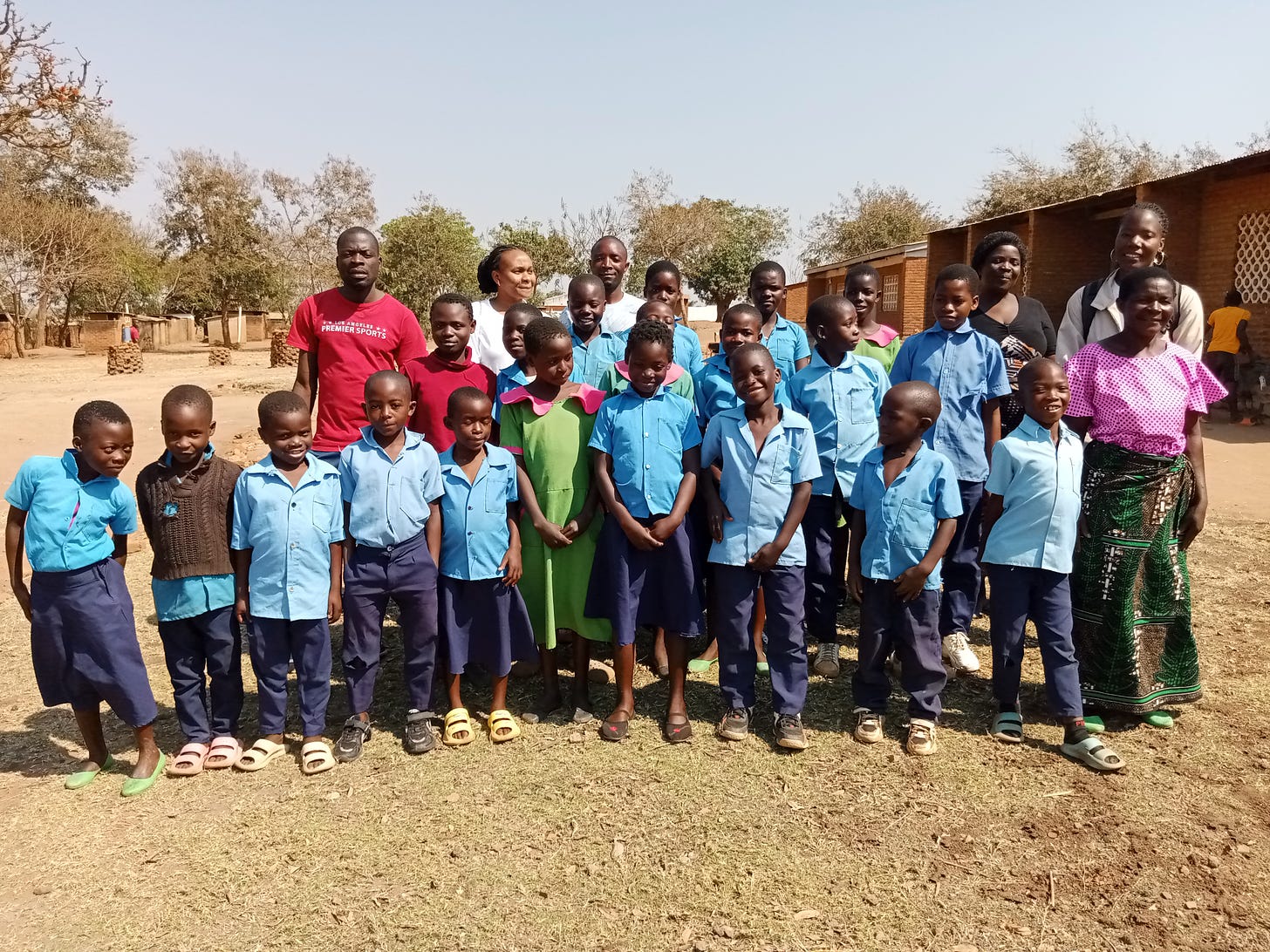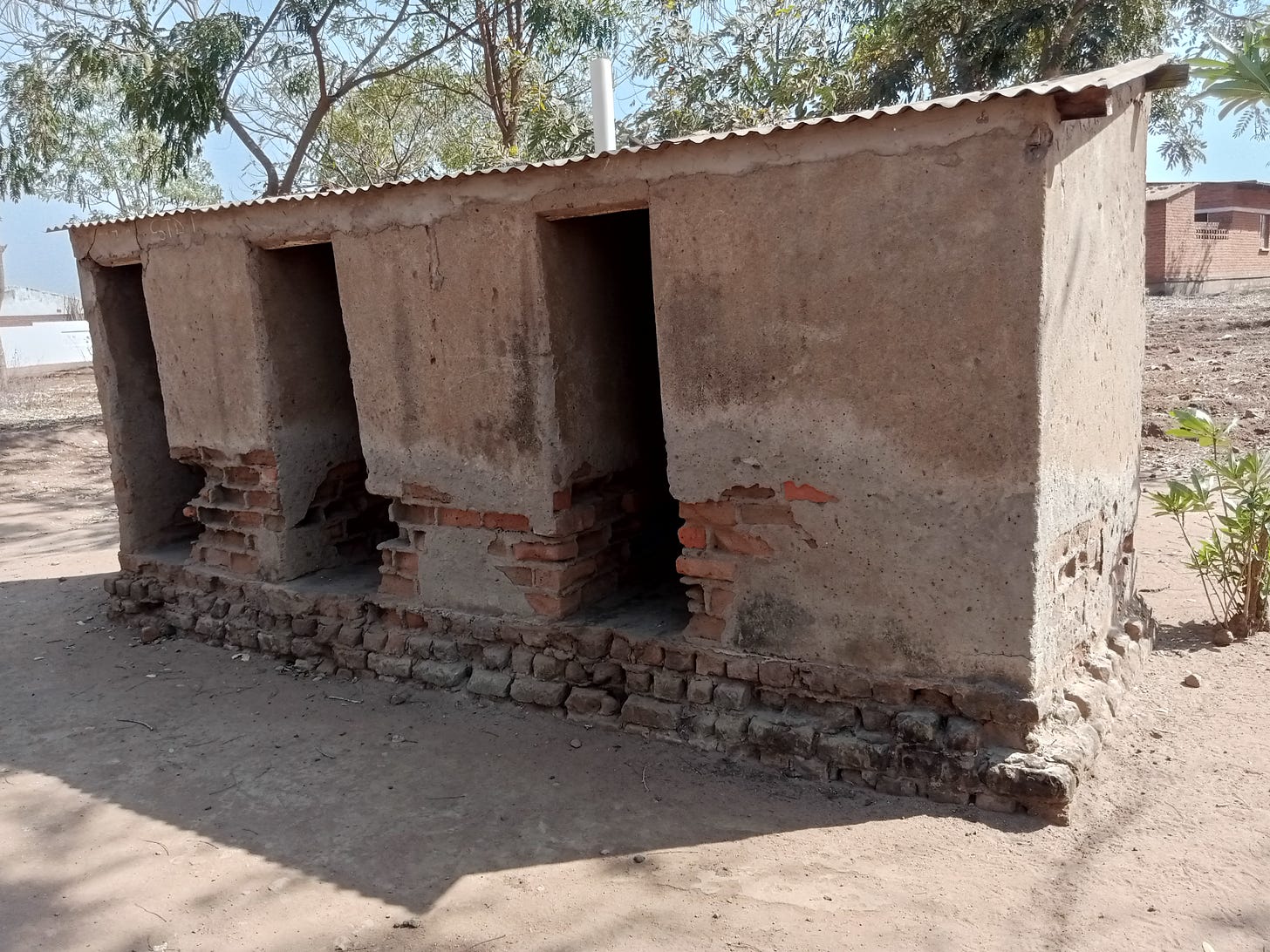New Toilets Boost Attendance, Learning at Rural Malawi School
The story of Simankhwala Primary School serves as a powerful reminder of how targeted interventions can make a significant difference in education and community development.
DOWA, Malawi — A simple addition, five new toilets, is making a profound difference at Simankhwala Primary School in Traditional Authority Mkukula in Dowa district, Malawi. The project, spearheaded by the Rhema Institute for Development (RHID), has addressed a critical sanitation issue that had long hindered the school’s progress, writes Winston Mwale.
The Rhema Institute for Development (RHID), a local non-governmental organization, spearheaded this transformative project, addressing a critical sanitation issue that had long hindered the school's progress.
"We could line up and wait for our friends to use the few toilets there were before our turn," said Linda Billion, a fifth-grade student at Simankhwala.
Her classmate, Grace Clinton, nodded in agreement, adding, "We are many here so we always waited for others before using the toilets."
Before RHID's intervention, the school of 1,579 students—600 boys and 779 girls — grappled with a staggering ratio of about one toilet per 100 students.
This fell far below the Ministry of Health's recommendation of one toilet for every 25 students.
Catherine Kamwendo, chairperson of the Parent-Teacher Association (PTA), painted a vivid picture of the previous conditions.
"The problem with toilets distracted their education because they spent time waiting in line for their turn to use the toilet," she explained.
"At home, they complained to us that things were not ok at school because there were few toilets, and they were dirty and damaged."
RHID project officer Shalom Mughogho recounted the organization's decision to intervene.
"When we came, we looked at the condition of the toilets. They were not so good, and the head teacher also complained that with the ratio that is recommended by the Ministry of Health, it is not the way it's supposed to be," Mughogho said.
The project, implemented in two phases over the past year, cost approximately K3 million.
"Last year we brought in three toilets, and this year we brought in the other two toilets," Mughogho explained.
The impact of this intervention has been significant, particularly for female students.
Mughogho highlighted a crucial benefit: "Now they can come to school because they can easily go and change using the toilets rather than in the past they were having problems, especially when during the menstruation period they would rather stay at home than come to school because there were no rooms for them to change."
Jason Moyo, one of the school's senior teachers, reported tangible improvements in attendance and academic performance.
"We are grateful, thankful for the RHEMA, because they have been improving our schools according to their performance and reducing the dropout of learners," he said.
While Moyo couldn't provide specific figures, he noted a marked increase in the number of students, particularly girls, selected for secondary school following the toilet construction.
"There are maybe 22 girls, the minimum, you see, and the boys," he said, indicating a positive trend in academic achievement.
The school and community have taken ownership of maintaining the new facilities.
Moyo explained their approach: "We do manage by giving the learners the duty roster to clean these toilets every day while we are opening the schools. And the community also takes care of these toilets."
This community involvement was evident even during school holidays.
"As you can see, this is a holiday, but you have seen that a woman is cleaning around the toilets," Moyo pointed out, underscoring the community's commitment to the project's success.
Rhoda Gatiwelo, a school PTA committee member, expressed gratitude while highlighting ongoing needs.
"We are thankful to the organisation because toilets at this school used to be few and many were filled up. Now there is no more congestion at the toilets because they can now go at their convenience," she said.
However, Gatiwelo added, "As a committee, we ask for more toilets because there are many learners at the school."
Despite the progress, challenges remain at Simankhwala Primary School. Kamwendo outlined some pressing issues: "We still have other problems; classroom blocks here are not enough, and we don't have an office. There are also no change rooms for the girls, so we ask organisations to come to our rescue."
The school's struggles are set against a backdrop of gradual improvement since its establishment in 1993.
Moyo reflected on the school's history, noting, "The performance was very poor, mainly in the early years. But now they have improved."
RHID's intervention at Simankhwala aligns with its broader mission to reduce poverty and mitigate the impact of HIV/AIDS in Malawi.
Established in 2005, the organization envisions "a healthy and morally upright community that is spiritually and socio-economically empowered, transformed, and self-sustaining in all aspects of life, including food security, health, environment; and education."
In 2020, RHID developed a strategic plan for 2020-2023, focusing on five key areas: education, water and sanitation, nutrition, HIV/AIDS prevention, and women and children's empowerment.
The Simankhwala project exemplifies their commitment to ensuring primary school children have access to adequate education and health facilities.
Mughogho emphasized the importance of such interventions: "I think it's important because we need to improve the education standards where it's necessary. Like when we came here, they were complaining that girls, most of them—don't come to school during the menstrual period because they don't have enough rooms to change."
The project wasn't without its challenges. Mughogho recalled issues with community participation: "When we explained to the school that we want to start the project, they said that the VDC or the school will be able to provide sand and maybe some other builders who can be able to help. But when we started, the sand came in late, and as well, the builders who wanted to volunteer did not come, so it was a challenge."
Despite these setbacks, RHID persevered, bringing in paid builders to complete the project.
"We paid them as an organization. I think it was K150,000 for them to complete," Mughogho said, highlighting how the project also created local employment opportunities.
Looking to the future, both the school and RHID see the Simankhwala project as a stepping stone to further improvements.
Moyo expressed hope for continued support: "We are begging the REMA to help us with some toilets and changing rooms so that the learners can accumulate once they are experiencing menstruation period so that they can change their clothes."
Mughogho, reflecting on the project's success and challenges, offered words of encouragement to other organizations considering similar interventions: "My word to them is just to encourage them. Challenges will always be there. But when you want to bring change, we have sometimes to overlook the challenges and look forward to the help that we are bringing to the community because the change that we bring is permanent rather than the challenges that we may face along the way."
The story of Simankhwala Primary School serves as a powerful reminder of how targeted interventions can make a significant difference in education and community development.
RHID Executive Director, Innocent Semu, said the Simankwala project focused on constructing new toilets at Simankwala Primary School.
“We aimed to improve the wash facilities, primarily to prevent diseases like cholera and diarrhoea, which were prevalent among students. Additionally, we aimed to boost class attendance by providing better sanitation.”
“These factors motivated our decision to build new toilets at Simankwala Primary School.”
As students like Linda and Grace no longer worry about long waits for the toilet, they can focus on their studies, dreaming of a brighter future.
Meanwhile, organizations like RHID continue their vital work, one toilet at a time, transforming lives and communities across rural Malawi.






